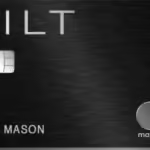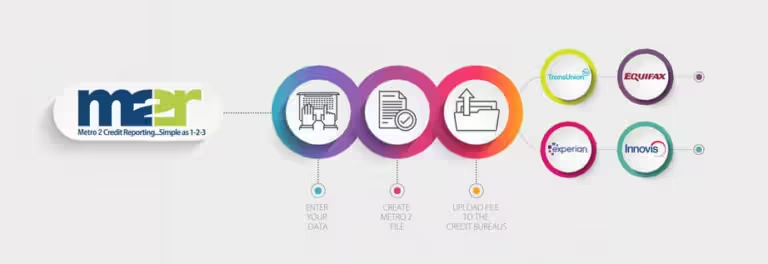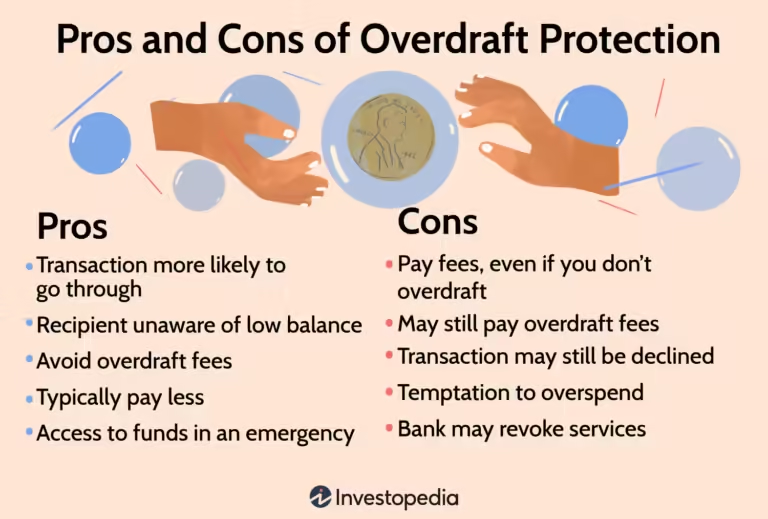Best Practices for Building Credit As a Student
Start by getting a secured credit card and paying your balance in full each month. Monitor your credit report regularly.
Building credit as a student is essential for future financial stability. Establishing good credit early can lead to better loan rates and rental opportunities. Secured credit cards are a great starting point since they require a security deposit, reducing risk.
Timely payments are crucial, as they show responsible credit usage. It’s also important to monitor your credit report for errors and track your progress. Diversifying your credit by responsibly using different types, like student loans or small personal loans, can also help. With consistent effort and financial discipline, students can build a strong credit foundation for their future.
Importance Of Building Credit Early
Building credit early is crucial for students. It lays a solid foundation for future financial success. Establishing a good credit history opens doors to better opportunities. Here, we’ll explore why it’s important to build credit early.
Future Financial Benefits
Starting early helps in many ways. A strong credit history can lead to lower interest rates on loans. This saves you money over time. You can also qualify for better credit cards. These cards often come with rewards and perks.
- Lower interest rates on loans
- Better credit card options
- Access to higher credit limits
Credit history impacts your ability to rent apartments. Landlords check credit scores before leasing. A good score can also help with job applications. Some employers review credit reports for certain positions. Building credit early sets you up for these benefits.
Impact On Loan Approvals
Credit history plays a big role in loan approvals. Lenders look at your credit score to decide. A higher score means you’re more likely to get approved. It also means you might get better terms.
| Credit Score | Loan Approval Likelihood | Loan Terms |
|---|---|---|
| Excellent (750+) | Very High | Best Terms |
| Good (700-749) | High | Good Terms |
| Fair (650-699) | Moderate | Average Terms |
| Poor (600-649) | Low | Poor Terms |
Building credit early gives you a head start. It ensures you have a good score when you need it. This is especially important for student loans. A good credit score can make a big difference in your loan approval.
Understanding Credit Scores
Building credit as a student can seem challenging. But understanding credit scores makes it easier. Your credit score is a number that shows how trustworthy you are with money. Lenders use this score to decide if they will give you a loan or a credit card. Knowing what affects your score can help you make smart choices.
Components Of A Credit Score
Credit scores have several parts. Each part affects your score differently. Here’s a breakdown:
| Component | Percentage |
|---|---|
| Payment History | 35% |
| Amounts Owed | 30% |
| Length of Credit History | 15% |
| New Credit | 10% |
| Credit Mix | 10% |
Payment history is the most important. It shows if you pay your bills on time. Amounts owed is how much debt you have. Length of credit history is how long you’ve had credit. New credit includes new accounts and recent inquiries. Credit mix is the variety of credit accounts you have.
How Scores Are Calculated
Credit scores range from 300 to 850. Higher scores are better. Here’s how they are calculated:
- Payment History: Pay your bills on time. Late payments hurt your score.
- Amounts Owed: Keep your balances low. High debt lowers your score.
- Length of Credit History: Older accounts boost your score. Keep accounts open.
- New Credit: Too many new accounts can be bad. Apply for credit sparingly.
- Credit Mix: Different types of credit help. Use a mix of credit cards and loans.
Understanding how scores are calculated helps you manage your credit wisely. Focus on paying bills on time and keeping debt low. This will help you build a strong credit score as a student.
Starting With A Student Credit Card
Building credit as a student can be challenging. Yet, it is essential for future financial stability. Student credit cards are a great starting point. They help in managing finances and building a credit history.
Choosing The Right Card
Choosing the right card is crucial. Look for cards with no annual fees. Also, seek cards that offer rewards for students.
| Feature | Details |
|---|---|
| No Annual Fee | Saves money |
| Rewards Programs | Earn points or cashback |
| Low APR | Lower interest rates |
| Student-Friendly Perks | Discounts and bonuses |
Compare different cards before deciding. Check for interest rates, fees, and benefits. Reading reviews can help too.
Managing Your Credit Limit
Managing your credit limit is key to building credit. Keep your spending below 30% of your limit. This is known as the credit utilization ratio. A low ratio helps your credit score.
- Track your spending regularly.
- Set a budget to avoid overspending.
- Pay your balance in full every month.
Paying on time boosts your credit score. Late payments can hurt your credit. Use automatic payments to avoid missing due dates.
Following these practices helps build a strong credit history. Financial discipline now leads to better financial opportunities later.
Secured Vs. Unsecured Credit Cards
Building credit as a student can be challenging. One of the key decisions involves choosing between secured and unsecured credit cards. Understanding the differences helps make an informed choice.
Pros And Cons Of Secured Cards
Secured credit cards require a deposit. The deposit acts as collateral.
| Pros | Cons |
|---|---|
|
|
Transitioning To Unsecured Cards
Unsecured credit cards don’t need a deposit. They offer higher credit limits.
To transition, maintain a good credit score. Pay bills on time and keep balances low. Credit card companies look for responsible behavior.
Benefits of unsecured cards include:
- No deposit needed.
- Higher credit limits.
- Better rewards and benefits.
Remember to use credit wisely. Avoid maxing out your card. Pay off the balance each month. This helps build a strong credit history.
Using Credit Responsibly
Building credit as a student can be challenging. Using credit responsibly is key to achieving a good credit score. This section will cover the best practices for managing your credit wisely.
Making Timely Payments
Making timely payments is crucial for maintaining a good credit score. Always pay your credit card bills on time. Late payments can hurt your credit score. Consider setting up automatic payments to avoid missing due dates. Even paying the minimum amount can keep your account in good standing.
Keeping Utilization Low
Keeping your credit utilization low is another important factor. Utilization refers to the amount of credit you use compared to your credit limit. Aim to use less than 30% of your available credit. This shows lenders that you can manage your credit responsibly.
Here’s a simple way to understand credit utilization:
| Credit Limit | Recommended Usage |
|---|---|
| $500 | < $150 |
| $1000 | < $300 |
| $2000 | < $600 |
By following these practices, you can build a strong credit history as a student. Remember, being responsible with credit now can benefit you in the future.
Monitoring Your Credit Report
As a student, monitoring your credit report is crucial. This ensures your credit health stays on track. Regular checks help identify errors that can affect your credit score. Here’s how you can keep an eye on your credit report effectively.
Accessing Free Reports
Students can access their credit reports for free. There are three main credit bureaus: Equifax, Experian, and TransUnion. Each bureau offers a free report annually.
- Visit AnnualCreditReport.com
- Request your free credit report
- Review reports from all three bureaus
Spread out your requests to monitor throughout the year. For example, get a report from Equifax in January, Experian in May, and TransUnion in September. This way, you can check your credit regularly without spending money.
Identifying Errors
Errors on your credit report can lower your credit score. It’s important to identify and correct them quickly. Here are common errors to look for:
| Error Type | Examples |
|---|---|
| Personal Information | Incorrect name, address, or Social Security number |
| Account Information | Accounts that don’t belong to you, incorrect balances |
| Payment History | Late payments you didn’t make, wrong dates |
To dispute an error:
- Contact the credit bureau
- Provide documentation supporting your claim
- Follow up to ensure the error is corrected
Regular monitoring and swift action keep your credit score healthy. Stay vigilant and proactive to ensure a strong credit future.
Building Credit Without A Credit Card
Building credit as a student can be challenging. Many students think they need a credit card. That is not true. There are several ways to build credit without a credit card.
Student Loans And Credit
Student loans can help build credit. Paying them on time is important. This shows lenders you are responsible.
| Action | Impact on Credit |
|---|---|
| Make payments on time | Positive |
| Miss payments | Negative |
Paying Bills On Time
Paying bills on time can build credit. This includes rent, utilities, and phone bills. Consistent payments show you are reliable.
- Set reminders: Use phone alarms or apps.
- Automate payments: Set up automatic payments.
Both methods help ensure you never miss a payment.
Avoiding Common Pitfalls
Building credit as a student is crucial for future financial health. But, many students fall into common traps that can harm their credit scores. Understanding these pitfalls can help you avoid them and build a strong credit foundation.
Managing Debt Wisely
Debt can be a double-edged sword for students. It is important to manage it wisely. Here are some tips:
- Track your spending: Keep an eye on every dollar spent.
- Create a budget: Plan your monthly expenses to avoid overspending.
- Pay your bills on time: Late payments can hurt your credit score.
- Use credit cards sparingly: Avoid maxing out your credit cards.
Understanding Interest Rates
Interest rates can make debt more expensive over time. Knowing how they work is key:
| Type of Debt | Typical Interest Rate | Impact on Debt |
|---|---|---|
| Credit Cards | 15%-25% | High interest can quickly increase your debt. |
| Student Loans | 5%-10% | Lower rates but can add up over time. |
| Personal Loans | 10%-20% | Moderate rates, manageable with a good plan. |
Always aim for the lowest interest rate possible. Compare different financial products before committing. Understand the terms and conditions.
Frequently Asked Questions
How Can Students Start Building Credit?
Students can start building credit by getting a student credit card. They should use it responsibly and pay the balance in full each month.
Why Is Building Credit Important For Students?
Building credit is crucial for students because it helps them qualify for loans. Good credit can also lead to better interest rates.
What Is A Secured Credit Card?
A secured credit card requires a cash deposit as collateral. It’s a good option for students with no credit history.
How Can Students Avoid Credit Card Debt?
Students can avoid credit card debt by budgeting wisely. They should spend only what they can pay off each month.
Conclusion
Building credit as a student is crucial for future financial health. Start early, use credit responsibly, and pay on time. Monitor your credit score regularly. These practices will help you establish a strong credit foundation. Remember, good credit opens doors to better financial opportunities.
Follow these tips and watch your credit grow.










